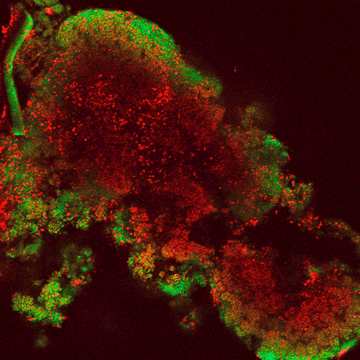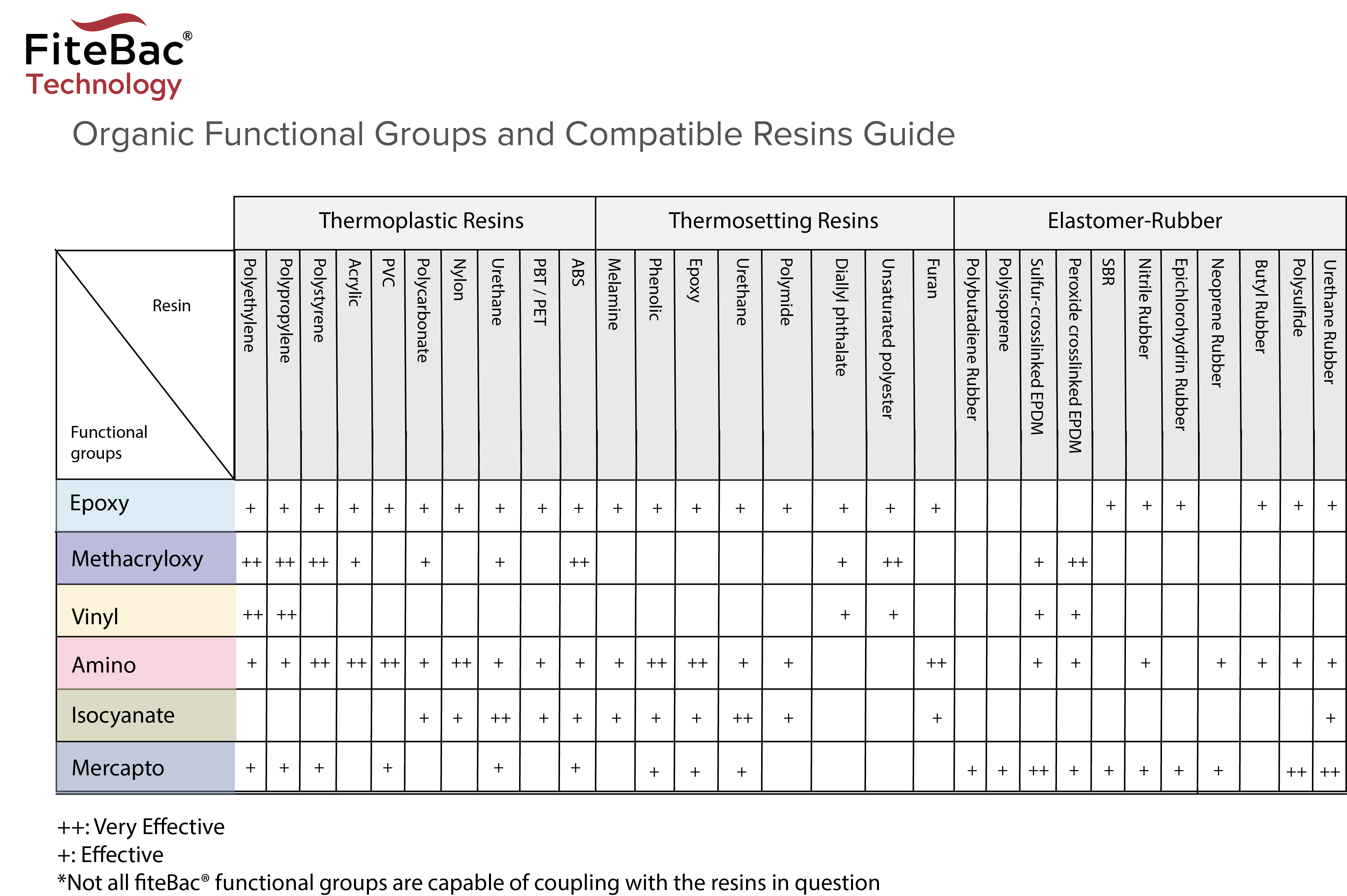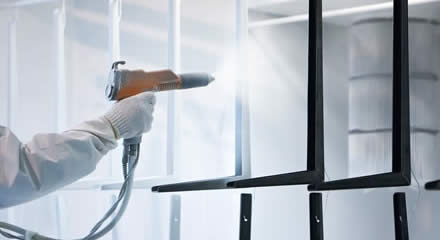
Explore the chemistry behind FiteBac®
In a mix and match approach, different end functional macro monomers may be synthesized with permanent, non leaching, microbiocidal activities that are independent of the loss of the surface layer, as the activity has been incorporated throughout the product.
3D Confocal imaging & transmission election microscopy of biofilm showing green live bacteria as imaging from K18 coated surface to upper layers of biofilm.


Industrial Applications

Petrochemical

Coatings

Composites and Textiles
Material Property Enhancements
Non-leaching antibacterial, antiviral antifungal
Adhesive composition supports self-promoting adhesion to a wide variety of substrates
Emulsifier allows previously non-miscible materials to coexist in synergistically react
Plasticizer compatible in a variety of chemical systems (acrylates, epoxies, polymers, elastomers)
Surface property modifier provides control surface energy properties.
Facile modifications of surface hydrophobicity or hydrophilicity — (system dependent, user-defined).

Enhanced wettability and bondability onto a wide variety of substrates: carbon fibers, glass fibers, etc
Controlled enhancement a filler/binder
Promotes covalent bonding between wide variety of filler particles and surrounding networks
— (organic or inorganic)
Bonds to silica, kaolin, aluminum trihydrate, titanium dioxide, etc.
Can be used to create its own controlled-sized in-situ filler — (silsesquioxanes and ormosiles)
Proven Capabilities
As additive to thermoset/thermoplastic resins
Increase polymer conversion
Decrease polymerization shrinkage
Increase toughness
As additive to Elastomer-Rubber
Easily incorporated into resins master-batch, extruded/blown films or spray for coatings and nonwovens
Impact modifier
Discover the versatility of FiteBac®
antimicrobial technology
FiteBac® is a versatile antimicrobial technology, developed by Dr Kirk Kimmerling and Dr Franklin Tay, in collaboration with researchers from around the world, allowing for the incorporation of antimicrobial protection into almost any material.
By linking potent quaternary ammonium antimicrobials to a polymerizable silane backbone, they have developed a versatile new class of antimicrobial compounds that can be permanently incorporated into most materials.
Peer-reviewed scientific publications, as well as the recent clearance of K18 QAMS by the FDA for use in the manufacturing of dental acrylics, show the efficacy of the FiteBac® approach.



